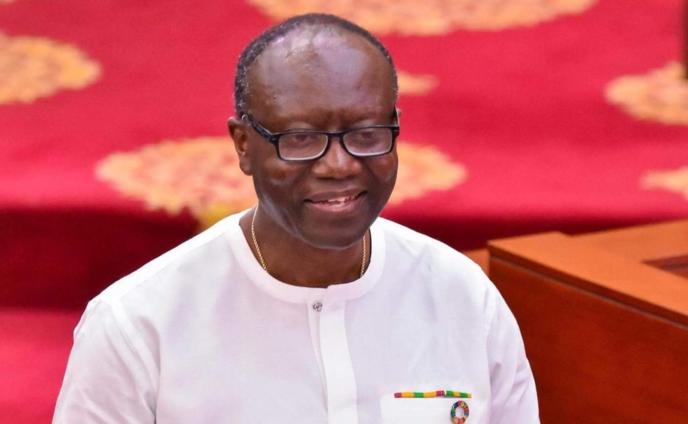Government has unveiled plans for a substantial overhaul of the Electronic Transfer Levy as part of its Medium Term Revenue Strategy.
This move signifies a dedicated effort to revamp and optimize this taxation policy for greater efficiency and effectiveness.
In May 2022, the deeply unpopular tax on mobile money transactions, known as the e-levy was introduced.
When it was introduced, the levy was structured as a 1.5% charge on all electronic and mobile money transactions over ¢100 per day.
The e-levy was designed to raise more money for the government by extracting larger tax contributions from Ghana’s informal sector.
In January 2023, the government reduced the rate of the tax from 1.5% to 1%.
The unique feature of the levy, an exemption threshold for transactions below ¢100 a day, is expected to be removed but remains in place for now, although its real value has been eroded by inflation over the past 12 months.
The levy’s effects – on Ghana’s public finances, its poor, mobile money usage – have been at the centre of intense and polarising public conversations, much of it without empirical basis.
This comprehensive redesign of the Electronic Transfer Levy may represent a forward-thinking approach to taxation in the digital age.
It, however, aligns with the government's broader strategy to modernize its revenue collection methods while ensuring that the burden of taxation is distributed equitably across various sectors of the economy.
Other reforms proposed in the medium-term revenue strategy are outlined below:
Firstly, there's a plan to broaden the withholding tax regime, extending its coverage to various tax types, with the aim of bolstering taxpayer identification, facilitating more efficient tax collection, and simplifying filing processes, particularly for incomes within the informal sector.
Secondly, the strategy includes measures to streamline tax returns and scrutinize the modified taxation system, all geared towards reducing tax avoidance and fostering voluntary compliance.
Furthermore, a critical component of the strategy involves a thorough review of outdated tax categories such as stamp duty, income tax stamp, and vehicle income tax, with an emphasis on aligning them with current market dynamics.
Additionally, the strategy looks to enhance the taxation of rental income, ensuring a fairer contribution from this sector.
Lastly, the plan includes the implementation of the taxation on Gross Gaming Revenue (GGR) for industry players and the introduction of withholding tax on winnings, marking a significant step towards a more comprehensive and equitable tax structure.
Latest Stories
-
Jack Daniel’s hits out at Canada pulling US alcohol
10 minutes -
Driver on bail over fraudulent land transaction
27 minutes -
Common vaginal ‘imbalance’ may be an STI
40 minutes -
Keynote speakers arrive in Paris for Women of Valour
3 hours -
Chelsea edge out Copenhagen to take control of last-16 tie
4 hours -
Zirkzee scores but Man United held by Real Sociedad
4 hours -
Neymar returns to Brazil squad after 17-month absence
4 hours -
‘Calm down, it’s not over’, Mourinho warns Rangers
4 hours -
It’s time to reset Ghana and private sector must lead the way – Ishmael Yamson
5 hours -
Prosecutors demand Luis Rubiales World Cup kiss retrial
5 hours -
Ghana won’t sink any further, investors must stay – Ishmael Yamson
5 hours -
Dr. Louisa Satekla pays courtesy call on Haruna Iddrisu to promote oral health education
5 hours -
Coastal Civil Society Forum engages tidal wave victims, calls for urgent gov’t action
6 hours -
ECB apologises for Pope Francis Ashes post joke
6 hours -
Denmark postal service to stop delivering letters
6 hours

